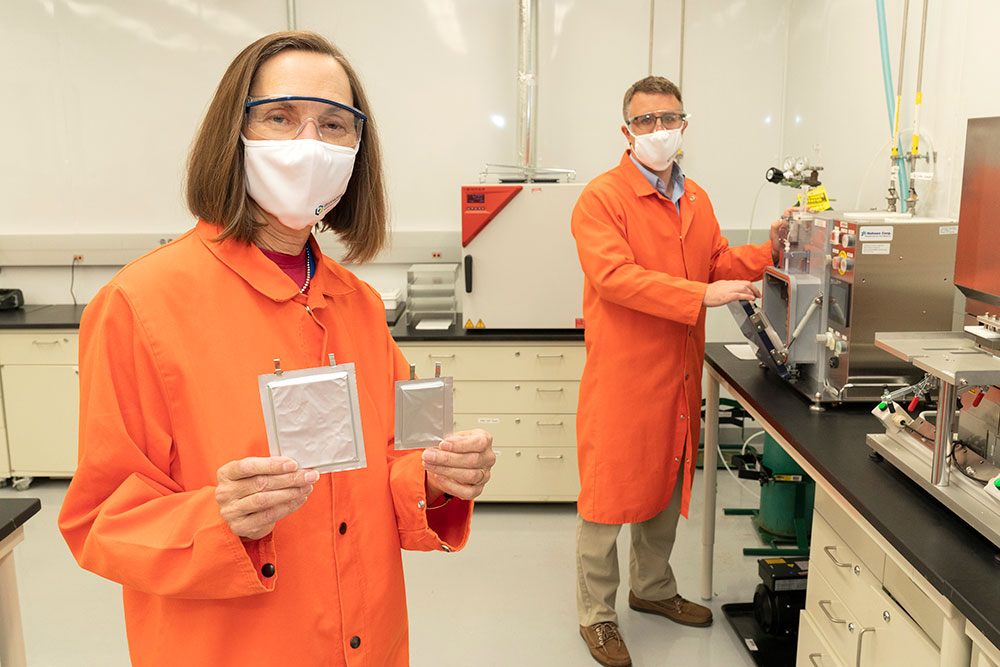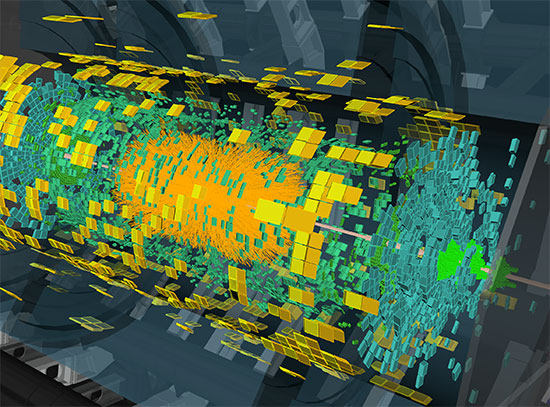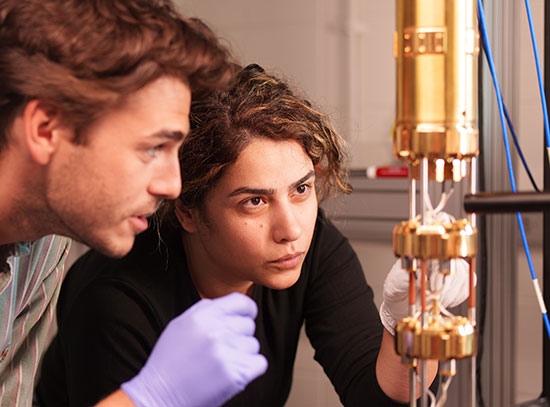Revving Up to Advance Battery Research for Electric Vehicles
Institute for Electrochemically Stored Energy to receive $2 million plus DOE grant
August 24, 2021
 enlarge
enlarge
Esther Takeuchi with David Brock, a former SBU graduate student, now an associate scientist at Brookhaven and the Lab's PI for the project. This "dry lab" in Brookhaven's Interdisciplinary Science Building has tightly controlled climate conditions and the instrumentation for prototyping and testing coin- and pouch-cell batteries.
The following news release about new funding that could accelerate the development of batteries for electric vehicles was posted today by Stony Brook University (SBU), a partner in the project with the U.S. Department of Energy’s Brookhaven National Laboratory and Brown University. David Bock, a former SBU graduate student now an associate scientist in Brookhaven Lab’s Interdisciplinary Science Department (ISD), is the Brookhaven Lab principal investigator for the project. Additional Brookhaven Lab ISD participants include Lisa Housel, Lei Wang, and Chavis Stackhouse. For more information about Brookhaven Lab’s role in this project, contact: Karen McNulty Walsh, 631-344-8350, kmcnulty@bnl.gov.
STONY BROOK, NY, August 24, 2021 – Stony Brook University’s Institute for Electrochemically Stored Energy, through the Research Foundation of SUNY, has received a major grant from the U.S Department of Energy (DOE) to further develop battery technology that could potentially be used in the creation of more efficient electric vehicles (EVs). The research, led by Esther Takeuchi, PhD, is funded through the DOE’s Office of Energy Efficiency and Renewable Energy, Vehicles Technology Office, and is part of a national research initiative to accelerate advancements in zero-emissions vehicles. The grant totals $2,285,813, effective October 1, 2021, and runs through December 2024.
“Our research is focused on new electrolytes to enable batteries to operate over wide temperatures, charge fast, and cycle effectively,” explains Takeuchi, SUNY Distinguished Professor, Materials Science, Chemical Engineering and Chemistry, the William and Jane Knapp Chair in Energy and the Environment and Principal Investigator. She also has a joint appointment with the DOE’s Brookhaven National Laboratory, of which Stony Brook is part of the management team.
Scientists from Stony Brook University, Brookhaven National Laboratory, and Brown University will collaborate on the research with the goal to establish the new class of electrolytes for building storage capacity in EVs.
“Brookhaven National Laboratory is making significant contributions to initiatives related to clean energy. This new program will address some of the scientific challenges related to batteries for electric vehicles,” says Jim Misewich, Brookhaven Lab’s Associate Laboratory Director for the Energy and Photon Sciences Directorate. “This is also an outstanding example of collaboration where Brookhaven National Lab scientists will be interacting closely with faculty and young investigators from Stony Brook University and Brown University. We are delighted to participate in this opportunity.”
The research team will develop electrolytes under extreme conditions. By using unique tools available at each respective institution, the scientific team will characterize ion mobility and stability properties of the electrolytes, and test batteries under baseline and extreme conditions to evaluate electrochemical function. The work will combine modeling, simulation and experimentation – all in an effort to meet the needs of present and anticipated Li-ion battery applications.
Stony Brook joins 23 other research organizations nationwide to advance the R&D necessary to help decarbonize the transportation sector. The total DOE funding for this initiative is $60 million.
Brookhaven National Laboratory is supported by the U.S. Department of Energy’s Office of Science. The Office of Science is the single largest supporter of basic research in the physical sciences in the United States and is working to address some of the most pressing challenges of our time. For more information, visit https://www.energy.gov/science/.
Follow @BrookhavenLab on Twitter or find us on Facebook.
2021-19063 | INT/EXT | Newsroom









